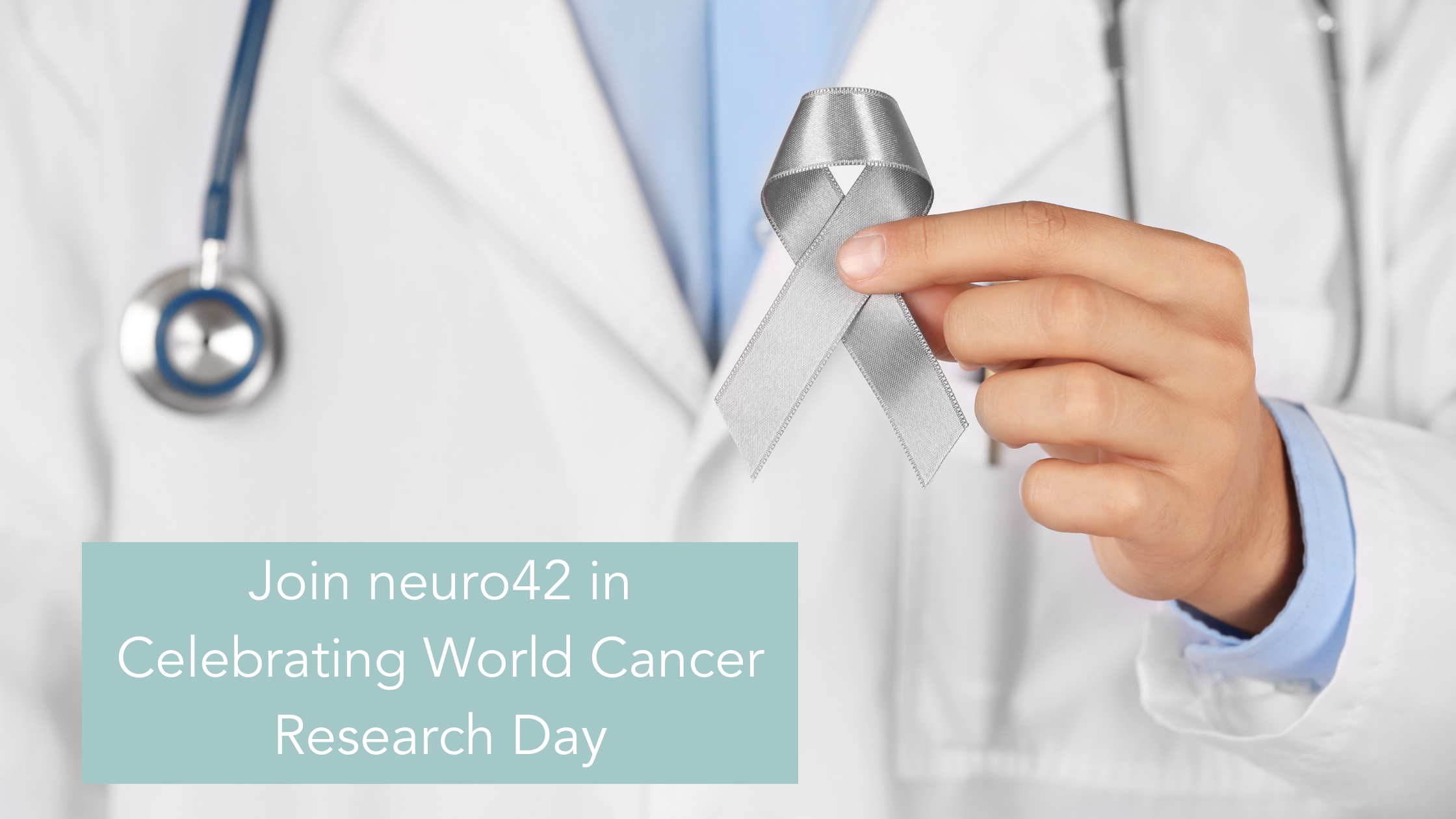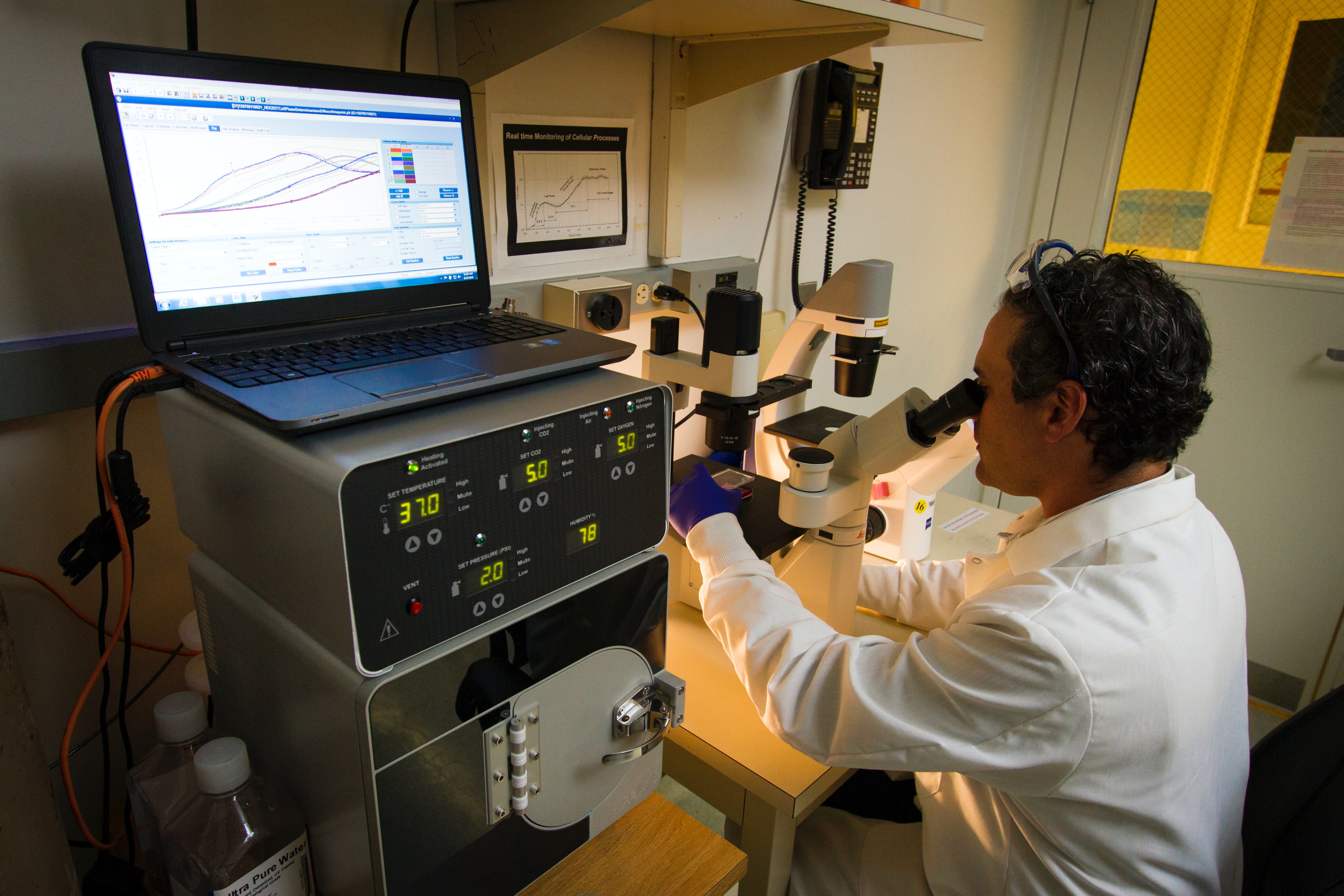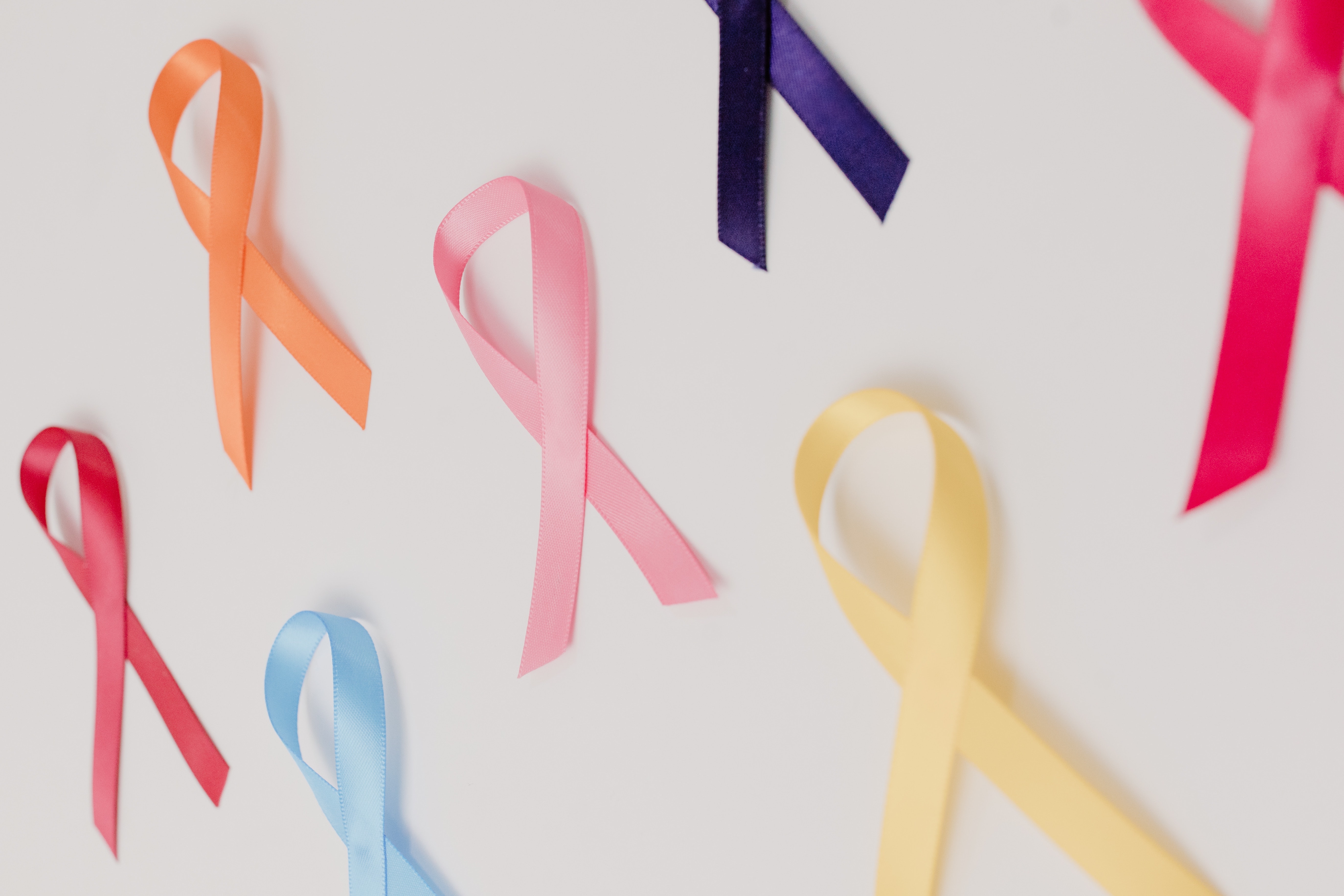Join neuro42 in Celebrating World Cancer Research Day

Most of us are familiar with the Hippocratic Oath—a pledge that physicians take to uphold the highest of ethics while practicing medicine—and the fact that it bears the name of the ancient Greek physician, Hippocrates. But what far fewer people know is that Hippocrates is also responsible for the origin of the word “cancer.”
The man commonly referred to as the “Father of Medicine” used terms like “carcinos” and “carcinoma” to describe both non-ulcer forming and ulcer-forming tumors before those words were translated into “cancer” by a Roman physician named Celsus many years later.
We’ve come a long way from Hippocrates’ and Celsus’ lifetimes (literally and figuratively), and so has what we know about cancer. Much of that knowledge is a direct result of ongoing clinical cancer research efforts that have driven both familiarity of how the disease works and innovation intended to stave it off.
Today, neuro42 celebrates World Cancer Research Day with a closer look at the movement. And because brain cancer is so closely linked to our mission, we wanted to highlight a few of the most pressing challenges facing brain cancer researchers today.

What is World Cancer Research Day?
Despite the fact that cancer research has been ongoing for centuries, World Cancer Research Day has only been around since 2016. The initiative took shape when a collection of cancer research organizations came together to accomplish five specific goals by 2025. According to a piece published in the medical journal, Clinical Cancer Research, those goals are as follows:
- Increase social awareness and knowledge about the value and impact of cancer research efforts by establishing September 24 as World Cancer Research Day
- Enhance sustainable financial sources for cancer research in each country by involving individuals, companies, and institutions
- Promote international collaboration to enable global advances in cancer research
- Provide training in cancer research
- Encourage the development of infrastructures for cancer research in each country
It appears that the first five years of the program have been a resounding success with World Cancer Research Day gaining momentum and recognition. In fact, the number of international organizations involved has grown from 10 when it was launched to 89 now.

Challenges facing brain cancer researchers
Across the cancer spectrum, we’re seeing great strides in survival rates—thanks in large part to clinical cancer research and better screening protocols. To put some context around that claim, the American Cancer Society reports that the death rate from cancer among Americans fell by 29% from 1991 to 2017. While the industry has witnessed long-term drops in death rates in lung, colorectal, breast and prostate cancers, other forms of the disease have yet to experience a similar pattern.
Brain cancer, for instance, remains particularly deadly—and it’s also one of the most challenging to study. The Institute of Cancer Research writes that only 14% of brain cancer patients live five or more years after diagnosis, a number that it says “has improved little over the last 40 years.”
Some of the biggest obstacles to cracking the nut on brain cancer research may require complete overhauls of the status quo. As the authors of one report in Nature Reviews Clinical Oncology said, it may be time to redesign the research pipeline, ending siloed practices and encouraging more collaboration between basic and clinical researchers.
Another hurdle in brain cancer research is that brain tumors are among some of the most complex found in the body. However, it’s been suggested that an improvement in modeling systems through replica, lab-grown tumors could lead to advancements in treatment modalities.

What neuro42 is doing to help brain cancer
The official World Cancer Research Day motto is: “For the future of cancer research, don’t stand still. We won’t...Make your move.” At neuro42, we understand the importance of cancer research and how we must continue to push forward with innovative new ways to identify and treat cancer.
Our company was formed with the goal of focusing exclusively on brain imaging, which positions us in a unique place where we can work in lockstep with brain cancer researchers. Our technology empowers practitioners with a better way of triaging, screening, diagnosing and intervening in cases involving brain tumors and other neurological conditions.
We’re excited about not only the future of our company but what’s in store for brain cancer research, and we’re proud to support World Cancer Research Day.

